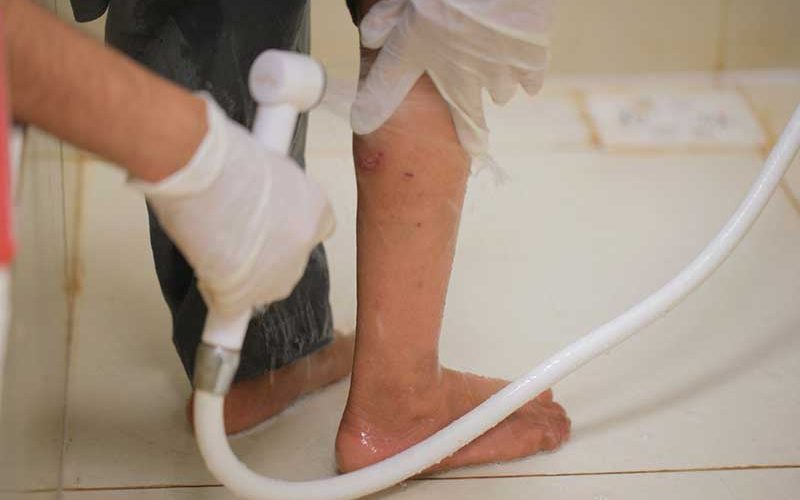
Patient Story | Umar
It was a typical day at the clinic: complex referrals, difficult diagnoses, and frequent power outages. Patients in the waiting area had been waiting for over two hours and were agitated and quarrelsome. In the midst of all this, the Emergency Department called me on my desk phone: “I have this 12-year-old boy with Rabies. What should I tell the parents?”
“Oh, God,” I thought, “This is the most difficult task of the day.” I left the clinic with the feeling of apprehension that the word ‘Rabies’ always evokes in my mind. The boy’s uncle, who sensed the danger of his nephew’s symptoms but wanted to confirm the diagnosis, met with me. “I have to see the boy first,” I said.
The boy was lying on a stretcher, alert and observant. His face was flushed, and he had difficulty breathing. Interns, nurses, and doctors in training surrounded him. I got permission from the boy and his uncle to film the conversation on my cell phone.
“My name is Umar, I am 12 years old, and I am a class six student in Hyderabad.” He spoke fluently but in short sentences, as he was short of breath.
“I was playing in the park, and there were nearly forty children. A dog suddenly came and started running around the park and bit many kids.”
“Where did she bite you?” I asked.
“I tried to run, but I fell, and she bit me on my upper arm and thighs and other places.” He then lifted his shirt to show wounds on his chest and back. “It happened more than two months ago.”
“What did your father do then?”
“My father passed away. My uncle took me to the hospital, and they washed me up and gave me injections in both my arms.
“Did they give any injection into the wounds”? I probed a crucial question. Umar looked perplexed. “No, but I went back at least three more times to get the shots, and they said I would be safe.”
“Are you thirsty? Would you like to drink some water?” I asked.
He said, “I haven’t had any food or water for two days now. I can’t seem to swallow, but I can try.”
A nurse brought him water in a cup. Umar accepted the cup, hesitated, then attempted to drink. Immediately he began to choke, and the water regurgitated through his mouth. “Please, please, no more. Doctor, I am frightened, please help me get better. I haven’t slept, and I don’t know what will happen to me”. His eyes were wide with fear, and he took shallow and fast breaths.
I stroked his forehead and told him that all would be well. In addition, I advised him to close his eyes and relax. He gave a faint smile and said. “Doctor, please email me the video; it’s xxxx@gmail.com.”
My heart couldn’t take it anymore. The nurses lowered their moist eyes while some walked away to hide their tears. I composed myself and spoke to his uncle about the futility of further care. We could only give him terminal comfort care with heavy sedation to end his suffering. His mother would be left just with her eight-year-old son, but his uncle had prepared for the worst.
Umar died that night.




